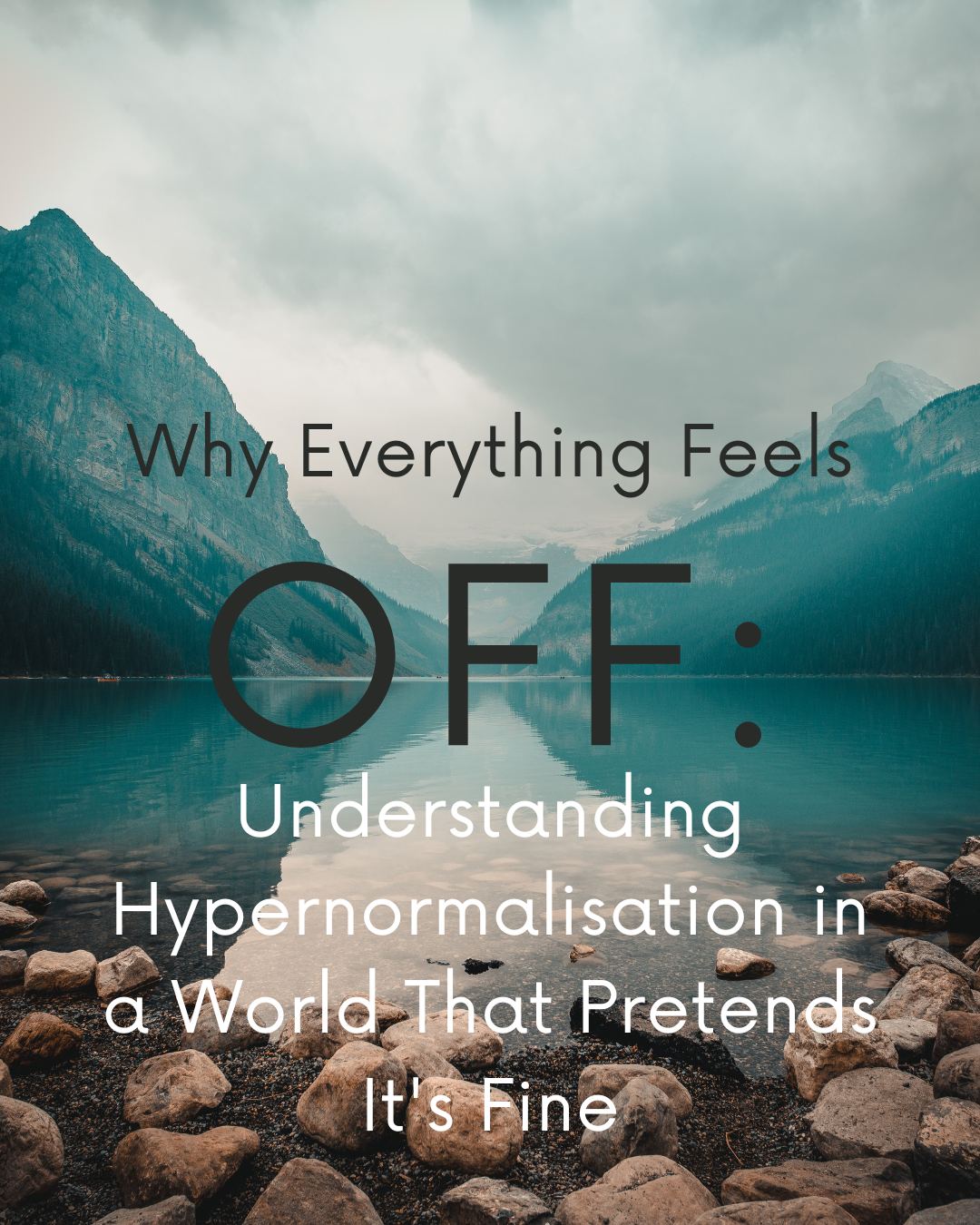Why Everything Feels Off: Understanding Hypernormalisation in a World That Pretends It's Fine
The sense that something’s not quite right, even though everyone around us is acting like everything is fine. News anchors smile. Politicians spin their talking points. Work emails keep piling up. But deep down, the vibes are off.
This eerie disconnect has a name: hypernormalisation.
Anthropologist Alexei Yurchak coined the term in his 2006 book Everything Was Forever, Until It Was No More, which studied life in the late Soviet Union. In those final years, everyone knew the system was broken—but they kept pretending it wasn’t. People went through the motions, repeated official slogans, and participated in state rituals—not out of belief, but because they couldn’t imagine an alternative. It was easier to act like everything was normal than to confront the collapse.
“Everyone knew the system was failing,” Yurchak wrote, “yet no one could imagine an alternative.”
Enter Adam Curtis, who brought this concept to Western audiences in his 2016 BBC documentary HyperNormalisation. Curtis argues that in the face of overwhelming complexity—financial crises, geopolitical chaos, and technological disruption—Western leaders began telling simplified stories to soothe the public. The media parroted those narratives. Reality became curated, managed, performed. And as these official stories drifted further from lived experience, a collective sense of unreality took hold.
This is the feeling many of us live with today: we know things aren’t okay, but the systems around us pretend they are. And that gap—the dissonance between what’s real and what’s performed—is driving a quiet emotional exhaustion.
Rahaf Harfoush, digital anthropologist and author of Hustle and Float, helps us understand another piece of this puzzle: the internalization of unrealistic systems. Harfoush explores how modern work culture demands not just productivity, but emotional performance—the constant need to appear “together,” motivated, and successful. Even as we burn out, we're expected to post wins, stay upbeat, and keep grinding.
“We are being conditioned to value visibility over value itself,” Harfoush writes. “What matters is not what we’re doing, but how it looks like we’re doing.”
Sound familiar?
It’s hypernormalisation on the inside. We project the image of thriving while quietly unraveling. We post productivity hacks while secretly wondering if anything we do matters. We sense the system is unsustainable—but no one knows how to stop.
So what do we do?
Start by naming it. Recognizing this condition—whether in politics, media, or our own mental health—gives us language for the tension we feel. We’re not crazy. We’re not broken. We’re responding to a world that often demands illusion over truth.
And by seeing through the performance, we can begin to step out of it.
Sources:
Yurchak, Alexei. Everything Was Forever, Until It Was No More: The Last Soviet Generation. Princeton University Press, 2006.
Curtis, Adam. HyperNormalisation. BBC, 2016.
Harfoush, Rahaf. Hustle and Float: Reclaim Your Creativity and Thrive in a World Obsessed with Work. Diversion Books, 2019

